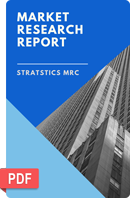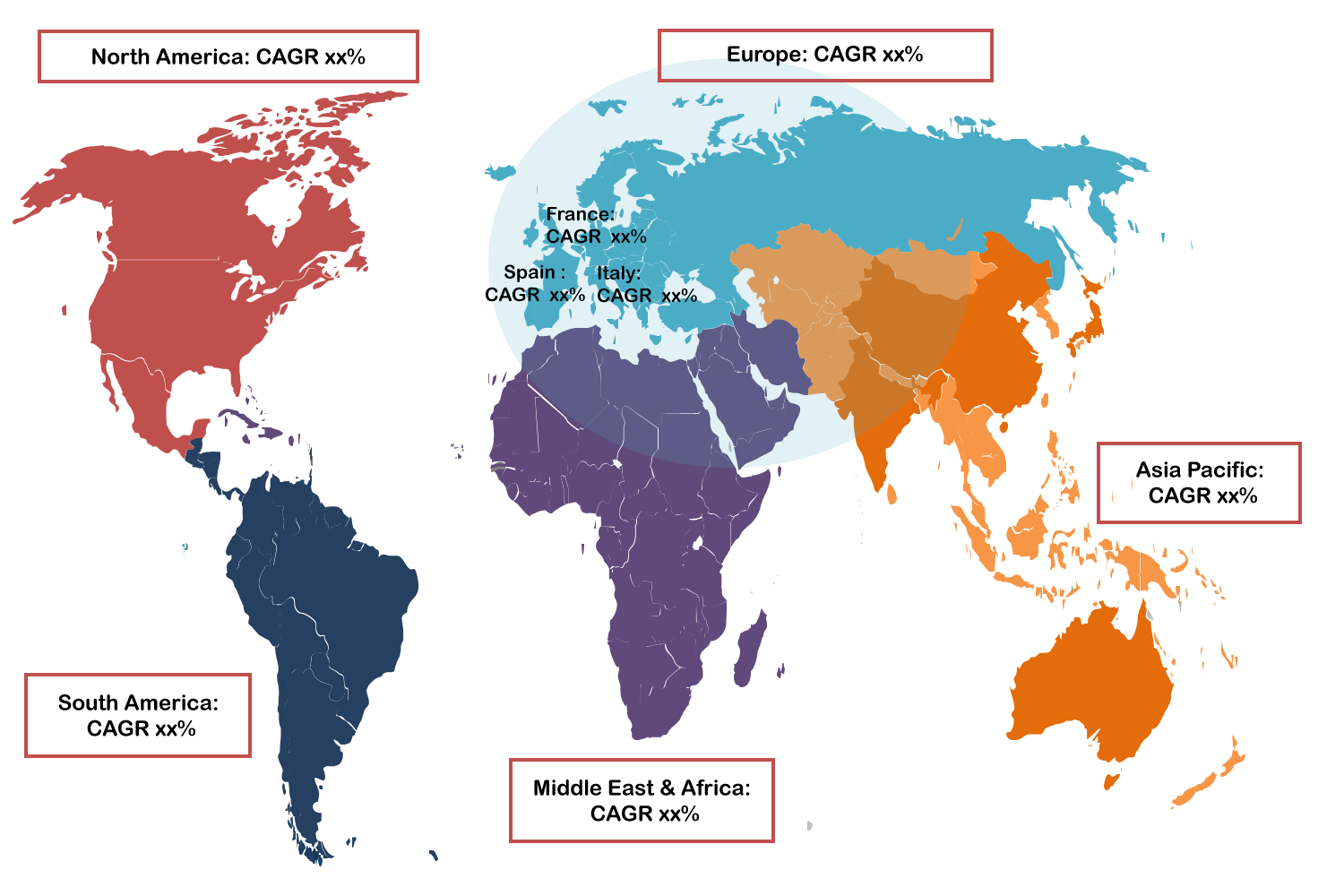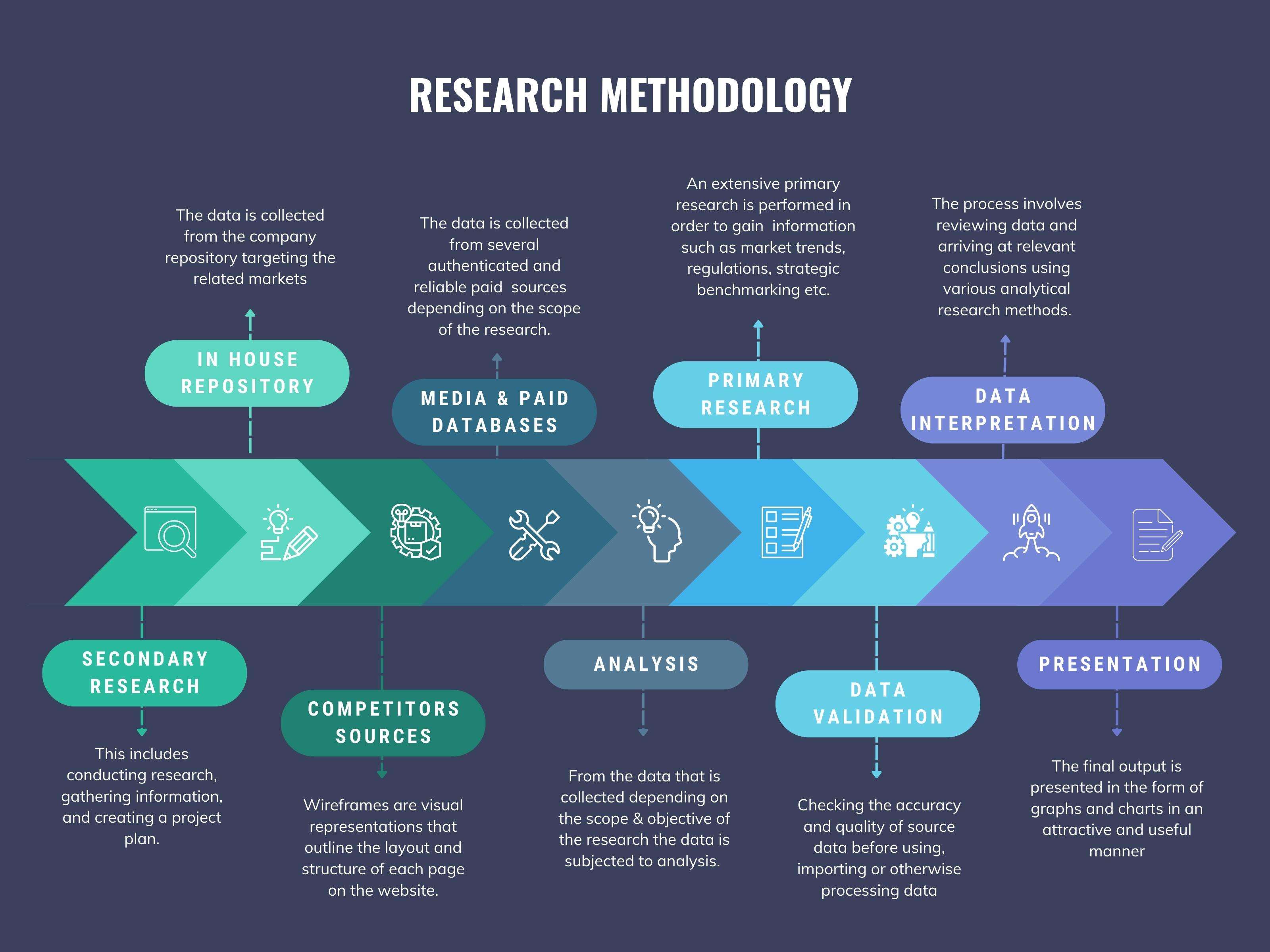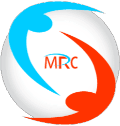
Protein Supplements Market
Protein Supplements Market Forecasts to 2030 - Global Analysis By Product (Animal-Based Protein Supplement, Plant-Based Protein Supplement, Protein Bars, Protein Powders, Ready to Drink and Other Products), Age Group (Baby Boomers, Generation X and Millennials), Distribution Channel (Direct to Consumers, Supermarkets and Hypermarkets, Pharmacies and Drug Stores, Online Retail Stores, Gym and Health Clubs, Specialist Sport Store and Other Distribution Channels), Application and By Geography

|
Years Covered |
2021-2030 |
|
Estimated Year Value (2023) |
US $6.42 BN |
|
Projected Year Value (2030) |
US $12.68 BN |
|
CAGR (2023 - 2030) |
10.2% |
|
Regions Covered |
North America, Europe, Asia Pacific, South America, and Middle East & Africa |
|
Countries Covered |
US, Canada, Mexico, Germany, UK, Italy, France, Spain, Japan, China, India, Australia, New Zealand, South Korea, Rest of Asia Pacific, South America, Argentina, Brazil, Chile, Middle East & Africa, Saudi Arabia, UAE, Qatar, and South Africa |
|
Largest Market |
Asia Pacific |
|
Highest Growing Market |
Europe |
According to Stratistics MRC, the Global Protein Supplements Market is accounted for $6.42 billion in 2023 and is expected to reach $12.68 billion by 2030 growing at a CAGR of 10.2% during the forecast period. Protein is necessary for the human body to operate correctly. Protein provides strength and aids in the growth and repair of cells. The human body needs different amounts of protein depending on age, gender, weight, and general health. One vital part of a healthy diet is protein. The chemical 'building blocks' of proteins are amino acids. The body uses amino acids to make hormones enzymes, and to grow and repair bones and muscles. Protein helps with weight loss and management, gains muscular leanness, and minimizes muscle loss. Bodybuilders and sports athletes frequently utilize protein supplements as a form of nutritional and bodybuilding supplement to enhance their diet and improve their protein intake without increasing their daily consumption of fat and carbohydrates.
According to Office for National Statistics (UK), in 2021, the sales value of protein concentrates surpassed GBP 463 million (USD 634.31 million), which increased from GBP 439 million (USD 601.43 million) in 2020.

Market Dynamics:
Driver:
Changing dietary preferences
Modern consumers are increasingly prioritizing health and wellness, leading to shifts in dietary patterns such as increased focus on protein-rich diets. Factors such as hectic lifestyles, rising health consciousness, and growing awareness of the importance of protein for muscle building, weight management, and overall well-being have fueled this trend. Moreover, as individuals seek to diversify their diets and explore alternative sources of nutrition, protein supplements offer a convenient and accessible solution to meet their dietary needs.
Restraint:
Price sensitivity
While protein supplements offer convenience and concentrated protein content, they often come with a higher price tag per serving than whole food alternatives such as lean meats, eggs, legumes, or dairy products. This pricing dynamic may deter budget-conscious consumers, especially in regions where economic constraints or limited disposable income are prevalent. However, the perceived value proposition of protein supplements relative to their price may vary among different consumer segments, influencing purchasing decisions.
Opportunity:
Rising health consciousness
With an increasing emphasis on preventive healthcare and wellness, individuals are proactively seeking ways to optimize their nutrition and support their overall health goals. Protein, known for its role in muscle repair and growth, satiety, and metabolism regulation, has gained particular attention in this paradigm shift toward healthier lifestyles. Consequently, there's a growing demand for protein supplements as they offer a convenient and effective means to bolster protein intake, especially for those with busy schedules or specific dietary preferences.
Threat:
Competition from traditional foods
Lean meats, dairy products, eggs, legumes, nuts, and seeds are all readily available and familiar options that provide protein along with other essential nutrients. These traditional foods not only offer protein but also come with a perception of being wholesome and minimally processed, appealing to consumers seeking natural dietary options. However, traditional foods are often more cost-effective per serving compared to protein supplements, making them an attractive choice for budget-conscious individuals.
Covid-19 Impact:
The increased focus on health and wellness during the pandemic has driven heightened demand for nutritional products, including protein supplements, as consumers seek to bolster their immune systems and maintain overall well-being. Disruptions in food supply chains and limited access to fresh produce have prompted some individuals to turn to supplements to ensure adequate protein intake. However, economic uncertainties and financial constraints resulting from the pandemic have led to reduced consumer spending in certain regions, impacting discretionary purchases like supplements.
The protein bars segment is expected to be the largest during the forecast period
Protein Bars segment commanded the largest share during the forecast period. Protein Bars offer convenience and portability, catering to the busy lifestyles of consumers who seek quick and nutritious on-the-go options. Additionally, the variety of flavors and formulations available in Protein Bars appeal to a broad consumer base, including those with specific dietary preferences such as vegan or gluten-free. Furthermore, the growing emphasis on health and fitness, coupled with increased awareness of the importance of protein in diet and exercise regimes, has led to a surge in demand for Protein Bars as a convenient and effective means of meeting daily protein requirements.
The baby boomers segment is expected to have the highest CAGR during the forecast period
Baby Boomers segment is expected to have the highest CAGR during the projected period due to shifting dietary preferences and a growing emphasis on healthy aging. As this demographic ages, maintaining muscle mass, strength, and overall health becomes increasingly important for preserving independence and quality of life. Protein supplements offer a convenient and efficient way for Baby Boomers to meet their protein needs, especially as dietary habits may change with age or due to factors such as reduced appetite or difficulty chewing. Therefore, these elements are boosting the segmental growth.
Region with largest share:
Because of the growing interest in fitness and health, the increasing awareness of the importance of protein intake, and the rising prevalence of lifestyle disorders, the Asia Pacific region held the largest portion of the market during the projection period. These factors are contributing to the stronger regional growth because of the increased demand for plant-based protein supplements, including soy protein, pea protein, and rice protein. Customers with dietary restrictions and those who desire plant-based alternatives are enthusiastic consumers of these supplements.
Region with highest CAGR:
Due to rising consumer awareness and consequent demand for products high in protein to promote active lifestyles and muscle building, the Europe area is expected to experience substantial expansion over the projected period. Protein supplements are becoming increasingly attractive to a larger audience, including individuals who were previously reluctant to try them, due to innovations in product formulas and flavors. In addition, the simple fact that these supplements are easily obtainable through a variety of channels of distribution, such as internet sites and physical stores, has helped to make them extremely common in the region.

Key players in the market
Some of the key players in Protein Supplements market include AMCO Proteins, CytoSport, Inc., Glanbia Plc, International Dehydrated Foods Inc., Muscle Pharm, NOW Foods, Quest Nutrition LLC, RSP Nutrition, The Bountiful Company, Transparent Labs, Woodbolt Distribution LLC, Abbott, BPI Sports, and Dymatize Enterprises LLC
Key Developments:
In October 2022, Tata Consumer Products (TCP), which consolidates the food and beverage businesses of the Tata Group, expanded into the health supplements segment by introducing ‘Tata GoFit,’ a health supplement range designed specifically for health-conscious women.
In March 2022, MusclePharm Corporation, a global leader in sports nutrition products, announced its plan to expand in the RTD protein category by launching a new line of whey protein drinks in the summer of 2022.
Products Covered:
• Animal-Based Protein Supplement
• Plant-Based Protein Supplement
• Protein Bars
• Ready to Drink
• Other Products
Age Groups Covered:
• Baby Boomers
• Generation X
• Millennials
Distribution Channels Covered:
• Direct to Consumers
• Supermarkets and Hypermarkets
• Pharmacies and Drug Stores
• Online Retail Stores
• Gym and Health Clubs
• Specialist Sport Store
• Other Distribution Channels
Applications Covered:
• Functional Foods
• Sports Nutrition
• Other Applications
Regions Covered:
• North America
o US
o Canada
o Mexico
• Europe
o Germany
o UK
o Italy
o France
o Spain
o Rest of Europe
• Asia Pacific
o Japan
o China
o India
o Australia
o New Zealand
o South Korea
o Rest of Asia Pacific
• South America
o Argentina
o Brazil
o Chile
o Rest of South America
• Middle East & Africa
o Saudi Arabia
o UAE
o Qatar
o South Africa
o Rest of Middle East & Africa
What our report offers:
- Market share assessments for the regional and country-level segments
- Strategic recommendations for the new entrants
- Covers Market data for the years 2021, 2022, 2023, 2026, and 2030
- Market Trends (Drivers, Constraints, Opportunities, Threats, Challenges, Investment Opportunities, and recommendations)
- Strategic recommendations in key business segments based on the market estimations
- Competitive landscaping mapping the key common trends
- Company profiling with detailed strategies, financials, and recent developments
- Supply chain trends mapping the latest technological advancements
Free Customization Offerings:
All the customers of this report will be entitled to receive one of the following free customization options:
• Company Profiling
o Comprehensive profiling of additional market players (up to 3)
o SWOT Analysis of key players (up to 3)
• Regional Segmentation
o Market estimations, Forecasts and CAGR of any prominent country as per the client's interest (Note: Depends on feasibility check)
• Competitive Benchmarking
Benchmarking of key players based on product portfolio, geographical presence, and strategic alliances
Table of Contents
1 Executive Summary
2 Preface
2.1 Abstract
2.2 Stake Holders
2.3 Research Scope
2.4 Research Methodology
2.4.1 Data Mining
2.4.2 Data Analysis
2.4.3 Data Validation
2.4.4 Research Approach
2.5 Research Sources
2.5.1 Primary Research Sources
2.5.2 Secondary Research Sources
2.5.3 Assumptions
3 Market Trend Analysis
3.1 Introduction
3.2 Drivers
3.3 Restraints
3.4 Opportunities
3.5 Threats
3.6 Product Analysis
3.7 Application Analysis
3.8 Emerging Markets
3.9 Impact of Covid-19
4 Porters Five Force Analysis
4.1 Bargaining power of suppliers
4.2 Bargaining power of buyers
4.3 Threat of substitutes
4.4 Threat of new entrants
4.5 Competitive rivalry
5 Global Protein Supplements Market, By Product
5.1 Introduction
5.2 Animal-Based Protein Supplement
5.2.1 Fish
5.2.2 Egg
5.2.3 Casein
5.2.4 Whey
5.2.5 Other Animal-Based Protein Supplements
5.3 Plant-Based Protein Supplement
5.3.1 Wheat
5.3.2 Rice
5.3.3 Pumpkin Seed
5.3.4 Spirulina
5.3.5 Soy
5.3.6 Hemp Protein Powders
5.3.7 Pea
5.3.8 Other Plant-Based Protein Supplements
5.4 Protein Bars
5.5 Ready to Drink
5.6 Other Products
6 Global Protein Supplements Market, By Age Group
6.1 Introduction
6.2 Baby Boomers
6.3 Generation X
6.4 Millennials
7 Global Protein Supplements Market, By Distribution Channel
7.1 Introduction
7.2 Direct to Consumers
7.3 Supermarkets and Hypermarkets
7.4 Pharmacies and Drug Stores
7.5 Online Retail Stores
7.6 Gym and Health Clubs
7.7 Specialist Sport Store
7.8 Other Distribution Channels
8 Global Protein Supplements Market, By Application
8.1 Introduction
8.2 Functional Foods
8.3 Sports Nutrition
8.4 Other Applications
9 Global Protein Supplements Market, By Geography
9.1 Introduction
9.2 North America
9.2.1 US
9.2.2 Canada
9.2.3 Mexico
9.3 Europe
9.3.1 Germany
9.3.2 UK
9.3.3 Italy
9.3.4 France
9.3.5 Spain
9.3.6 Rest of Europe
9.4 Asia Pacific
9.4.1 Japan
9.4.2 China
9.4.3 India
9.4.4 Australia
9.4.5 New Zealand
9.4.6 South Korea
9.4.7 Rest of Asia Pacific
9.5 South America
9.5.1 Argentina
9.5.2 Brazil
9.5.3 Chile
9.5.4 Rest of South America
9.6 Middle East & Africa
9.6.1 Saudi Arabia
9.6.2 UAE
9.6.3 Qatar
9.6.4 South Africa
9.6.5 Rest of Middle East & Africa
10 Key Developments
10.1 Agreements, Partnerships, Collaborations and Joint Ventures
10.2 Acquisitions & Mergers
10.3 New Product Launch
10.4 Expansions
10.5 Other Key Strategies
11 Company Profiling
11.1 AMCO Proteins
11.2 CytoSport, Inc.
11.3 Glanbia Plc
11.4 International Dehydrated Foods Inc.
11.5 Muscle Pharm
11.6 NOW Foods
11.7 Quest Nutrition LLC
11.8 RSP Nutrition
11.9 The Bountiful Company
11.10 Transparent Labs
11.11 Woodbolt Distribution LLC
List of Tables
1 Global Protein Supplements Market Outlook, By Region (2021-2030) ($MN)
2 Global Protein Supplements Market Outlook, By Product (2021-2030) ($MN)
3 Global Protein Supplements Market Outlook, By Animal-Based Protein Supplement (2021-2030) ($MN)
4 Global Protein Supplements Market Outlook, By Fish (2021-2030) ($MN)
5 Global Protein Supplements Market Outlook, By Egg (2021-2030) ($MN)
6 Global Protein Supplements Market Outlook, By Casein (2021-2030) ($MN)
7 Global Protein Supplements Market Outlook, By Whey (2021-2030) ($MN)
8 Global Protein Supplements Market Outlook, By Other Animal-Based Protein Supplements (2021-2030) ($MN)
9 Global Protein Supplements Market Outlook, By Plant-Based Protein Supplement (2021-2030) ($MN)
10 Global Protein Supplements Market Outlook, By Wheat (2021-2030) ($MN)
11 Global Protein Supplements Market Outlook, By Rice (2021-2030) ($MN)
12 Global Protein Supplements Market Outlook, By Pumpkin Seed (2021-2030) ($MN)
13 Global Protein Supplements Market Outlook, By Spirulina (2021-2030) ($MN)
14 Global Protein Supplements Market Outlook, By Soy (2021-2030) ($MN)
15 Global Protein Supplements Market Outlook, By Hemp Protein Powders (2021-2030) ($MN)
16 Global Protein Supplements Market Outlook, By Pea (2021-2030) ($MN)
17 Global Protein Supplements Market Outlook, By Other Plant-Based Protein Supplements (2021-2030) ($MN)
18 Global Protein Supplements Market Outlook, By Protein Bars (2021-2030) ($MN)
19 Global Protein Supplements Market Outlook, By Ready to Drink (2021-2030) ($MN)
20 Global Protein Supplements Market Outlook, By Other Products (2021-2030) ($MN)
21 Global Protein Supplements Market Outlook, By Age Group (2021-2030) ($MN)
22 Global Protein Supplements Market Outlook, By Baby Boomers (2021-2030) ($MN)
23 Global Protein Supplements Market Outlook, By Generation X (2021-2030) ($MN)
24 Global Protein Supplements Market Outlook, By Millennials (2021-2030) ($MN)
25 Global Protein Supplements Market Outlook, By Distribution Channel (2021-2030) ($MN)
26 Global Protein Supplements Market Outlook, By Direct to Consumers (2021-2030) ($MN)
27 Global Protein Supplements Market Outlook, By Supermarkets and Hypermarkets (2021-2030) ($MN)
28 Global Protein Supplements Market Outlook, By Pharmacies and Drug Stores (2021-2030) ($MN)
29 Global Protein Supplements Market Outlook, By Online Retail Stores (2021-2030) ($MN)
30 Global Protein Supplements Market Outlook, By Gym and Health Clubs (2021-2030) ($MN)
31 Global Protein Supplements Market Outlook, By Specialist Sport Store (2021-2030) ($MN)
32 Global Protein Supplements Market Outlook, By Other Distribution Channels (2021-2030) ($MN)
33 Global Protein Supplements Market Outlook, By Application (2021-2030) ($MN)
34 Global Protein Supplements Market Outlook, By Functional Foods (2021-2030) ($MN)
35 Global Protein Supplements Market Outlook, By Sports Nutrition (2021-2030) ($MN)
36 Global Protein Supplements Market Outlook, By Other Applications (2021-2030) ($MN)
Note: Tables for North America, Europe, APAC, South America, and Middle East & Africa Regions are also represented in the same manner as above.
List of Figures
RESEARCH METHODOLOGY

We at ‘Stratistics’ opt for an extensive research approach which involves data mining, data validation, and data analysis. The various research sources include in-house repository, secondary research, competitor’s sources, social media research, client internal data, and primary research.
Our team of analysts prefers the most reliable and authenticated data sources in order to perform the comprehensive literature search. With access to most of the authenticated data bases our team highly considers the best mix of information through various sources to obtain extensive and accurate analysis.
Each report takes an average time of a month and a team of 4 industry analysts. The time may vary depending on the scope and data availability of the desired market report. The various parameters used in the market assessment are standardized in order to enhance the data accuracy.
Data Mining
The data is collected from several authenticated, reliable, paid and unpaid sources and is filtered depending on the scope & objective of the research. Our reports repository acts as an added advantage in this procedure. Data gathering from the raw material suppliers, distributors and the manufacturers is performed on a regular basis, this helps in the comprehensive understanding of the products value chain. Apart from the above mentioned sources the data is also collected from the industry consultants to ensure the objective of the study is in the right direction.
Market trends such as technological advancements, regulatory affairs, market dynamics (Drivers, Restraints, Opportunities and Challenges) are obtained from scientific journals, market related national & international associations and organizations.
Data Analysis
From the data that is collected depending on the scope & objective of the research the data is subjected for the analysis. The critical steps that we follow for the data analysis include:
- Product Lifecycle Analysis
- Competitor analysis
- Risk analysis
- Porters Analysis
- PESTEL Analysis
- SWOT Analysis
The data engineering is performed by the core industry experts considering both the Marketing Mix Modeling and the Demand Forecasting. The marketing mix modeling makes use of multiple-regression techniques to predict the optimal mix of marketing variables. Regression factor is based on a number of variables and how they relate to an outcome such as sales or profits.
Data Validation
The data validation is performed by the exhaustive primary research from the expert interviews. This includes telephonic interviews, focus groups, face to face interviews, and questionnaires to validate our research from all aspects. The industry experts we approach come from the leading firms, involved in the supply chain ranging from the suppliers, distributors to the manufacturers and consumers so as to ensure an unbiased analysis.
We are in touch with more than 15,000 industry experts with the right mix of consultants, CEO's, presidents, vice presidents, managers, experts from both supply side and demand side, executives and so on.
The data validation involves the primary research from the industry experts belonging to:
- Leading Companies
- Suppliers & Distributors
- Manufacturers
- Consumers
- Industry/Strategic Consultants
Apart from the data validation the primary research also helps in performing the fill gap research, i.e. providing solutions for the unmet needs of the research which helps in enhancing the reports quality.
For more details about research methodology, kindly write to us at info@strategymrc.com
Frequently Asked Questions
In case of any queries regarding this report, you can contact the customer service by filing the “Inquiry Before Buy” form available on the right hand side. You may also contact us through email: info@strategymrc.com or phone: +1-301-202-5929
Yes, the samples are available for all the published reports. You can request them by filling the “Request Sample” option available in this page.
Yes, you can request a sample with your specific requirements. All the customized samples will be provided as per the requirement with the real data masked.
All our reports are available in Digital PDF format. In case if you require them in any other formats, such as PPT, Excel etc you can submit a request through “Inquiry Before Buy” form available on the right hand side. You may also contact us through email: info@strategymrc.com or phone: +1-301-202-5929
We offer a free 15% customization with every purchase. This requirement can be fulfilled for both pre and post sale. You may send your customization requirements through email at info@strategymrc.com or call us on +1-301-202-5929.
We have 3 different licensing options available in electronic format.
- Single User Licence: Allows one person, typically the buyer, to have access to the ordered product. The ordered product cannot be distributed to anyone else.
- 2-5 User Licence: Allows the ordered product to be shared among a maximum of 5 people within your organisation.
- Corporate License: Allows the product to be shared among all employees of your organisation regardless of their geographical location.
All our reports are typically be emailed to you as an attachment.
To order any available report you need to register on our website. The payment can be made either through CCAvenue or PayPal payments gateways which accept all international cards.
We extend our support to 6 months post sale. A post sale customization is also provided to cover your unmet needs in the report.
Request Customization
We provide a free 15% customization on every purchase. This requirement can be fulfilled for both pre and post sale. You may send your customization requirements through email at info@strategymrc.com or call us on +1-301-202-5929.
Note: This customization is absolutely free until it falls under the 15% bracket. If your requirement exceeds this a feasibility check will be performed. Post that, a quote will be provided along with the timelines.
WHY CHOOSE US ?

Assured Quality
Best in class reports with high standard of research integrity

24X7 Research Support
Continuous support to ensure the best customer experience.

Free Customization
Adding more values to your product of interest.

Safe & Secure Access
Providing a secured environment for all online transactions.

Trusted by 600+ Brands
Serving the most reputed brands across the world.
